Daniel Craig: the interview
‘Doing a Bond movie is a tricky f***ing job’
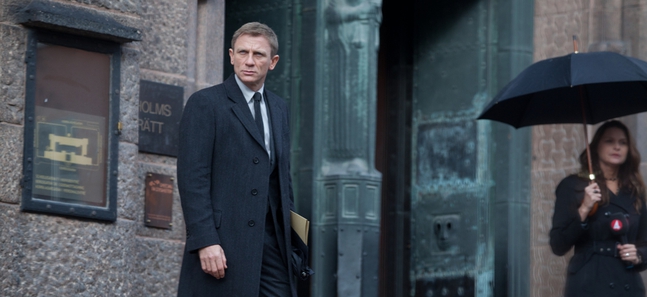
Daniel Craig in ‘The Girl with the Dragon Tattoo’. © 2011 Columbia TriStar Marketing Group, Inc. All Rights Reserved.
Posted: Mon Feb 06 2012
Part one | Part two
Did you have anything to do with getting Sam Mendes on board as director?
‘I did, yes, I did. He’s English, he’s Cambridge-educated, he’s smart. He’s lived with Bond all his life, he grew up with Bond the way I did. We grew up at exactly the same time, and I said to him, “We have to do this together, we have exactly the same reference points, we both like the same Bond movies and we both like the same bits in the same Bond movies we like.” We sat down and we just rabbited for hours about Live and Let Die or From Russia with Love, and talked about little scenes that we knew from them. That’s how we started talking about it. That’s what we tried to instill in the script. He’s been working his arse off to tie all these things together so they make sense – in a Bond way.’
I love that Sam Mendes’s last film was Away We Go – his most indie film yet.
‘Yes, that’s true, and now he’s making a $200m Bond movie. He’s an OCD control freak and I mean that in the nicest possible way, as all directors are. David Fincher included. They are all absolutely single-minded and all they want to do is get it right. On a movie like this, you need that – maybe I shouldn’t call him an “OCD control freak”: it’s a joke, but you need someone with lots of different heads – there’s a producing head, a directing head, a special-effects head, a publicity head. More than any other movie, you need someone with all that going on, and he just does, he’s a manager, a great manager, and one of the skills doing a Bond movie is about is managing a lot of people, saying, “Okay, do that, that’s got to be done, and I’ll do that.” It’s a tricky fucking job to do.’
It sounds like you’ve become even more involved behind the scenes as time has gone on.
‘I said from the very beginning to Barbara [Broccoli] and Michael [Wilson, the producers and guardians of the Bond franchise]: “If you give me this responsibility, I can just walk on that set and pretend to be James Bond,” but they allowed me to be involved more. It’s naturally progressed. I don’t want to get in people’s way, I just want to encourage things along. Sam got involved and then we got Roger Deakins [the director of photography], for fuck’s sake, who’s shooting it. The air is rare, and we’ve had the chance to employ some brilliant people. Win or lose, we’ve done the best we can because we’ve put the right people in the job. Pool the best talent you can, give them a good time and do the best we can – now I sound like a fucking politician!’
Did you worry about becoming public property – tabloid fodder – when you took on Bond?
‘Yes, in some respects it’s unavoidable, you can’t deny it. In some respects, I still fight with it now. I can’t go to war with paparazzi. The Daily Mail loves saying – [putting whiny voice on] “He never smiles” – yeah, because I know you’re fucking taking pictures of me, that’s why. Because the Daily Mail comes to mind every time I see a camera. I challenge anybody to fucking smile. I’m just not that person.
‘But I do get it, you can’t just come out and be angry. There’s no fucking point. You’ve got to live your life. I know I’m not that person. I’m never going to arrive at an airport after a 12-hour flight and go, “Oh, hi everyone, it’s so great to see you!” I can’t do it. You’ve got to live your life, you’ve got to enjoy it. And this is a great time, I’m playing James Bond. That’s what makes me secure about it, I’m having a lot of fun with it and getting a kick out of it, and people have a perception that I’m grumpy all the time.’
I remember when they announced you as Bond they had you speeding down the Thames on a boat. You obviously decided to swallow your worries about exposure to the press for that…
‘They wanted to fly me in on a Harrier jump jet! I remember thinking: “Okay, in for a penny…” But the safety regulations stopped that idea. The irony was, I got down to the river, to the military speedboat, and there was this marine giving me a lifejacket. And I was like, “Do I have to wear a life jacket?”, and he was like, “Yeah, you’re not getting on this boat without one.” But what about my suit!
‘It was a strange transition that time. I had no idea what was going on. Who could I ask? “Hey, Pierce [Brosnan], what’s it like?” I did do that. And he was just: “You’ve got to go for it.” There’s nothing that he could say that could be of any use whatsoever.’
Did you worry about being seen forever as Bond?
‘I weighed everything up and the only reason not to do it was fear. The fear of losing everything else. And you can’t not do something because you’re afraid. Well, you can, jumping off cliffs and things like that, but to be afraid of losing something because I was going to play James Bond is kind of nonsense. That’s how I convinced myself. I thought: Even if it goes wrong, hopefully I’ll earn enough money to live on an island when I’m old and get a leathery brown tan! And drink cocktails in the afternoon. Which sounds quite good to tell the truth.’
Before Bond, you had success with smart British films – Layer Cake, The Mother – but you hadn’t broken America, had you?
‘I went to audition for a lot of bad guys in American movies and was sick of going on tape to play the villain in this and that film…and then losing out to fucking… no, I’d better not say who!’
I think the ‘fucking’ bit scuppered that answer…
‘Yes! [Laughs] Let’s just say “the usual suspects”. So, apart from those films, luckily I was able to do really interesting English and European films. Thank God people like Roger Michell [director of The Mother] wanted to see me in these movies.’
Rewinding to the start. Did you really leave home in Chester at the age of 16 to join the National Youth Theatre in London? It seems young.
‘I left Chester in 1985, when it was as depressed as it could be. My mother says I wasn’t 16, so maybe I was 17 by the time I properly left home. But I definitely left at 16 and spent the summer in London. I lived in north London, west London, stayed on people’s floors until they chucked me out. We didn’t have any money, but my mum would bung me a couple of hundred quid, and they were people willing to look out for me. I managed to scrape it together. God knows how, it’s terrifying really. My mother gave me a gentle push. School had failed. There wasn’t a lot to do. I wanted to act and she knew that there wasn’t much going in Liverpool and I had to go to London.’
In the early 1990s, you won film roles even before you finished three years at Guildhall studying drama. Do you remember how it felt being on a film set for the first time?
‘In my third year I went up for a bad guy in an American movie. A South African. And I got it. I went to do this movie in South Africa and Zimbabwe and I just lost it, I forgot how to act. Everybody was saying, “Oh, you’re so intense, you’re so intense.” [Does his best ‘intense’ impression and bursts out laughing] I was shit-scared! I’d forgotten how to act! It wasn’t until doing the TV series Our Friends in the North in 1996 that I remembered what it was about. Doing that for a year changed everything. I remembered what I loved about acting. All the old hands were like, “Fucking relax, just enjoy it.” Literally, until that point, I was like a rabbit caught in the headlights. “Oh, you’re so intense! So angry!” ’[Cracks up again]
Do you wrestle with the more vain side of movie acting? The fact you’re expected to look good?
‘Me and my very close friend call it “modelling”. I don’t find myself particularly good at it. But you find yourself having to model sometimes in movies. It’s kind of that. [He does a Blue Steel impression, tipping his chin, giving it the stare.] Some people are really good at it. And then you watch it and you go, “Oh, that’s fucking modelling, what are you doing?” But it is part of movie-making. That’s what I like about David Fincher, too. He’s got an eye for that. He might say, “Tip your chin,” and you know he’s looking at an angle, he’s looking at the lighting. I love that. If you’re too aware of yourself I think it goes wrong, I really do. As long as my ears don’t stick out too much, I’m happy.
‘The greatest asset to an actor is their ego, but it’s also their greatest enemy. The ego gives you the balls to get up there and do it, but it’s also the thing that scuppers you because you’ve got to act, you’ve got to communicate, you’ve got to think about what the other person’s thinking, not whether you look good.’
As Bond, you’re virtually a pin-up, aren’t you?
‘The iconography of it is really important. I’ve just spent three or four months on and off with Tom Ford, trying suits on, over and over. It’s important. It just is. Whichever is the first suit I come out in, it has to have the reaction, “Oh, fucking hell, that’s a suit.” You have to have an eye on that and the look and feel of things. I’m in the gym every day, that’s the truth, I have to be there. I have to start doing it ten weeks off from filming, otherwise it doesn’t work.’
And, as Bond, you have to whip off your top at some point. So vanity surely comes into play?
‘To answer your question – yes!’
The Girl with the Dragon Tattoo opens nationwide on February 10
Part one | Part two
Tweets
- About Us |
- Work for Time Out |
- Send us info |
- Advertising |
- Mobile edition |
- Terms & Conditions |
- Privacy policy |
- Contact Us
Copyright © 2014 Time Out Tokyo










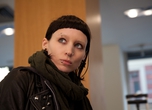
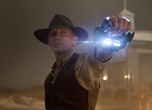
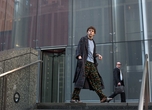
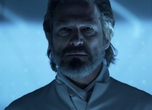
Add your comment